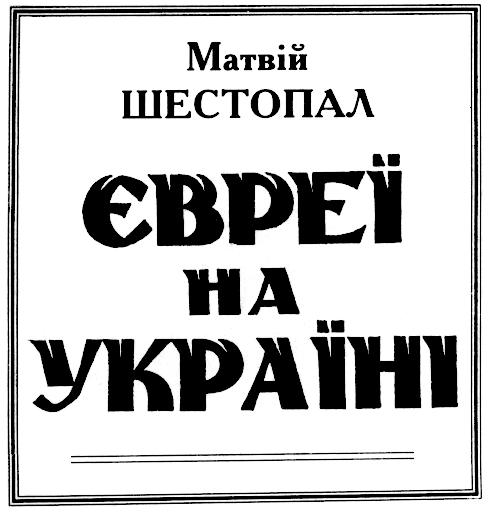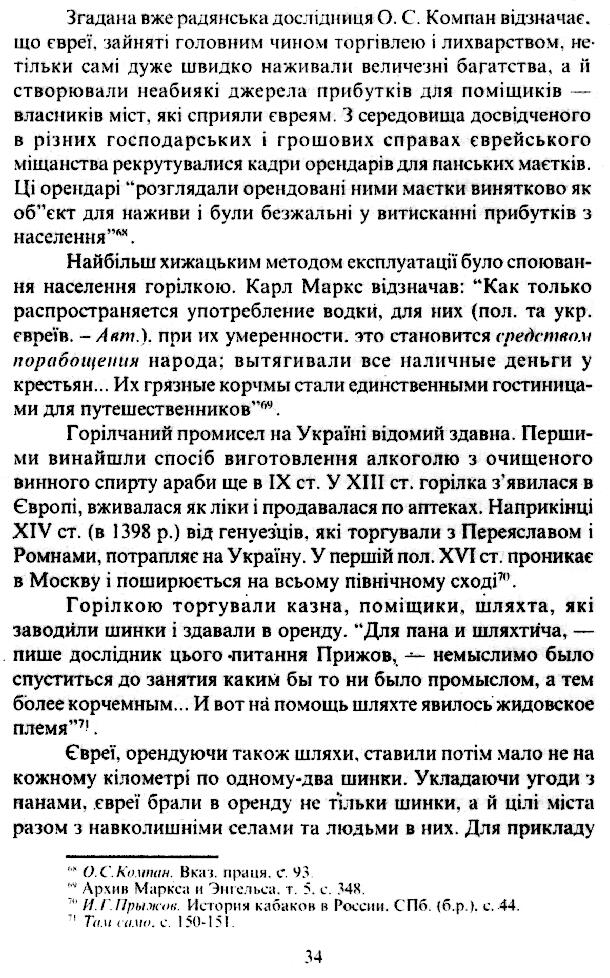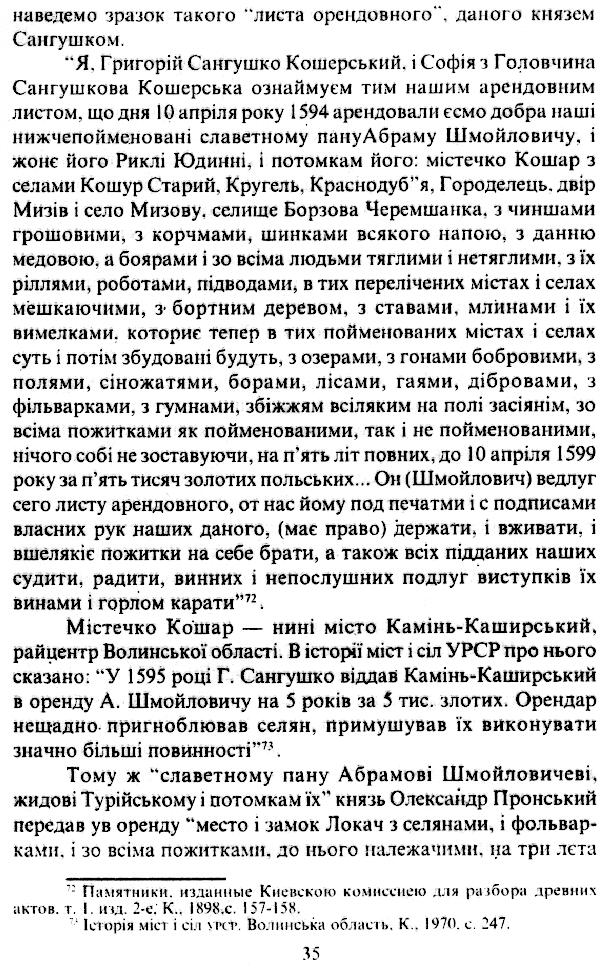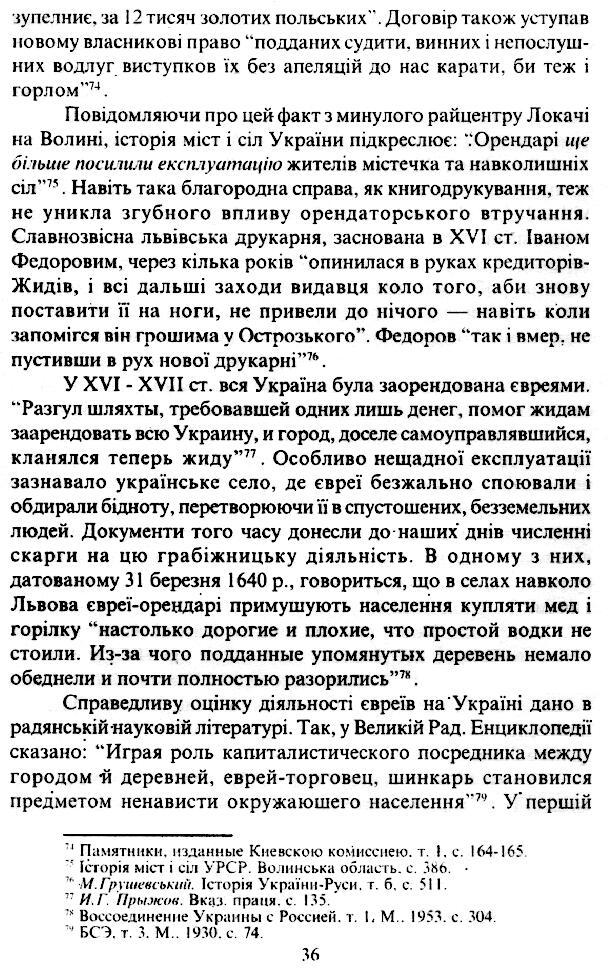we offer a specimen of such an "arenda contract," granted by Prince Sanhushko.
|
I, Hryhory Sanhushko Koshersky, and Sophia of Holowchyna Sanhushkova Kosherska, announce in this our arenda contract that on the 10th day of April, in the year 1594, we assigned by arenda contract those of our properties that are itemized below to our illustrious Mr. Abram Shmoilovych, and his wife Rykla Yudynna, and his successors: the town of Koshar with the villages Koshur Stary, Kruhel, Krasnodubia, Horodelets, the Myziv estate and the village of Myziv, the Borziv Cheremshanka settlement, with monies from rent, with pubs, taverns dispensing all sorts of alcoholic beverages, with the honey tribute, and the boyars with all their servants, regardless of whether they own livestock, with their cultivated fields, their labor, their wagons, living in the above-enumerated cities and villages, together with bee colonies, with ponds, mills and their ground grains, which in those above-enumerated cities and villages either exist today or will be built in the future, with lakes, with beaver lands, with fields, hay pastures, pine forests, woods, groves, oak groves, with farm houses, with barns, grain of all kinds sown in the fields, with all profitable activities whether itemized here or not, reserving nothing for ourselves, for five full years, until the 10th of April 1599, for five thousand Polish gold pieces... According to this arenda contract, he [Shmoilovych] is granted by us under seals and with signatures of our own hands, the right to own, to use, and to take for himself all manner of profit, and also all those we have placed in his power, to judge, to deliberate over and to punish the guilty and the disobedient according to the gravity of their transgressions, and to impose the death penalty.
|
The town of Koshar is today the city of Kamin-Kashyrsky, the district center of the Volynksy region. In the History of Cities and Villages of the Ukrainian SSR, it is mentioned that: "In the year 1595, H. Sanhushko granted Kamin-Kashyrsky in an arenda contract to A. Shmoilovych for 5 years in consideration of 5 thousand gold pieces. The arendar mercilessly oppressed the villagers, forcing them to carry out significantly greater obligations."
That is why Prince Oleksandr Pronsky granted an arenda contract "to the illustrious Mr. Abram Shmoilovych, the Jew Turiysky and their successors, the city and citadel of Lokach with the villagers, farmhouses, and with all the profitable activities, to belong to him, for three full years,
35
|





